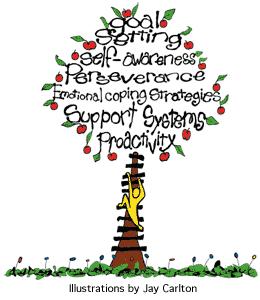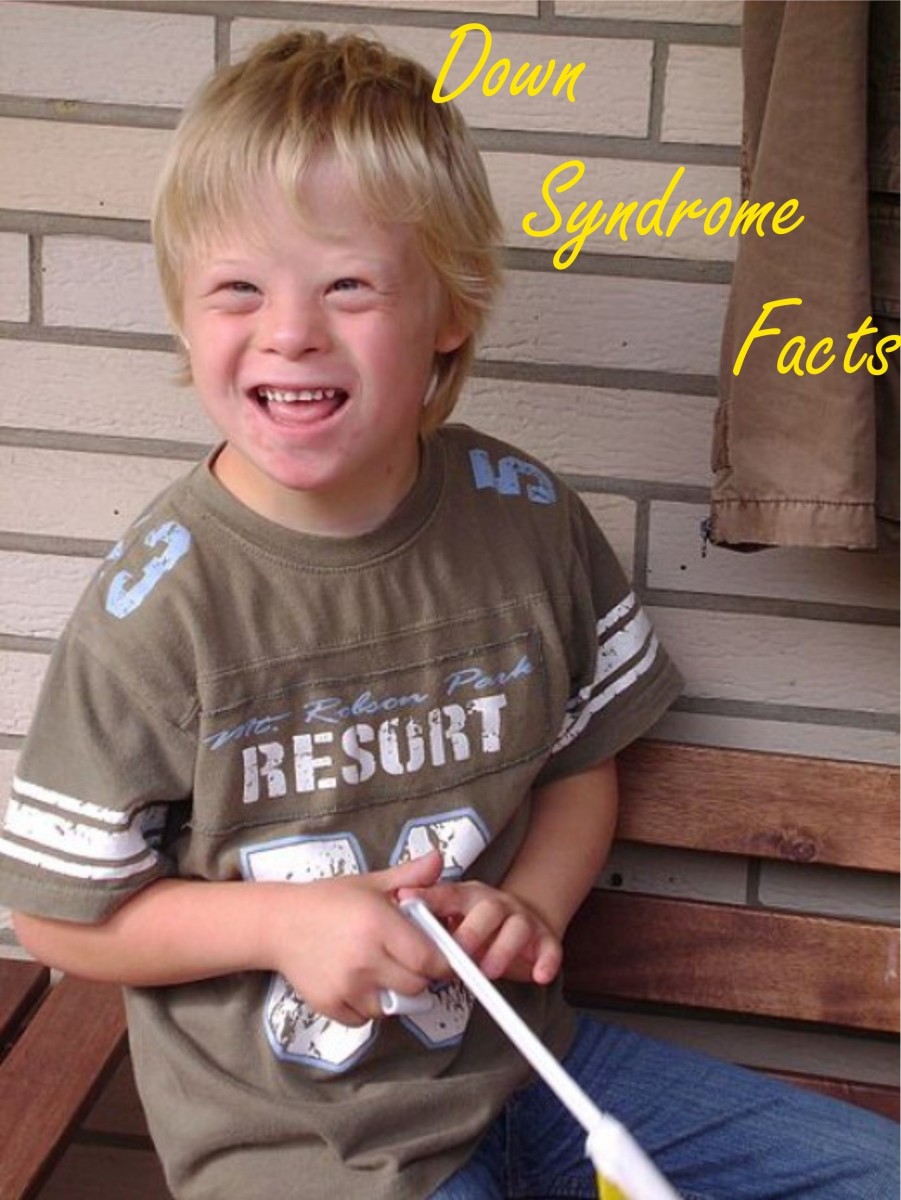Learning Disabilities in Children: Recognizing Symptoms & Coping Skills
Feeling Different-Unable to fit in


Symptoms & Early Indicators
It has probably been a good 20 years since I dealt with my own son's "learning disabilities", a term, by the way, that I have grown to dislike over the years, simply because it is constantly overused and misunderstood, further complicating a parent's attempt to make sense of and help their own child achieve success despite problems learning. For me, there were indicators, bright red flags, early on that my son, even as a baby, seemed overly agitated and seemed to cry more than other babies but there were then further symptoms as he grew that told me that there was definitely something going on that warranted concern. He did not have any interest in reading books, could not sit quietly for any sufficient length of time and he was barely able to write his own name and address by Kindergarten. The worst part was that he became so irritated when it came time to do any sort of writing or reading exercises, it was impossible for me to help him in the very areas that he so desperately needed assistance with.
The news that your child may have a learning disability is without a doubt, a difficult adjustment for any family, but for a single Mother, attempting to understand what is and isn't "normal" behavior for a first born child, can be overwhelming. As a parent, the thought that something may stand in the way of your child's success can be quite unsettling. Whether they have a learning disability or not however, keep in mind that the way that a parent behaves has a huge impact on their child's chances of success. A good attitude won't solve the problem but it can demonstrate hope and confidence to a child that probably already feels different and isolated. My son spent so much energy trying to hide his inability to understand what the teacher was saying that he probably missed the lesson itself entirely.
As difficult as it was, life went on, one year, one week and one day at a time. The problem in our case was that because my son felt so different, isolated from his original classmates in his new Special Ed Trailer, he began to act out even more, taking the focus off being "stupid" as he was frequently called. He eventually attended a private school in another city and as luck would have it, he met a wonderful teacher who shared his love of sports. This teacher encouraged my son to create a sports program at the school and assisted in him in getting it accomplished. A problem that many privately run schools had was a lack of any organized sports program--the one thing that gave my son a desperately needed ego-boost. With their new football and basketball programs now in place, it really helped to change my son's attitude about school. Although reading and writing will always be difficult and a source of frustration for my son, he made it through high school, has a job that he tolerates and just married his girlfriend last July. Ironically, she teaches 7th grade and specializes in family counseling and working with children who have learning problems.
Fortunately, many things have changed since my own journey through the world of special education.Thanks to the Internet, there are countless resources now, however it can still be incredibly confusing from the parental perspective. I would suggest a support group for parents that are in similar situations. One Small Step for Parents is an online community started by our own accomplished Author, Hubber and Mother Enelle Lamb. There is information, resources and support for parents raising children with ADHD and its attendant disorders. You can also read more about my own experience.
How to Cope
Keep Things in Perspective: Try not to be intimidated by news that your child may have a learning disability. All people learn differently! Your first priority is to support your child to keep their self esteem in tact. Provide emotional, educational and moral support, don't get caught up in testing, school bureaucracy and paperwork distract you!
Do Your own Research: Learn about new developments in learning disabilities. New programs and techniques that could make an impact with your child. Instinctively, we all look to others for solutions, teachers, counselors, doctors, but when it comes to finding the tools your child needs to survive, you know best so don't be afraid to take charge.
Be an Advocate for your Child You may need to speak up - frequently - to get the answers and special help you need for your child. Take a proactive role as a parent and work on improving your communication skills. Your child's success may depend on it.
Remember that Your Influence on Your Child is Paramount Your child will follow your lead. If you approach the learning challenges with optimism, hard work and an essential sense of humor then your child is much more likely to embrace your perspective. The school situation may not be perfect but try to look for things that your child enjoys, like a love of sports or animals and focus on that instead of on the negative.
Recognizing Symtoms
Does/Did your elementary school child:
1.) Get a late start developing language skills as a toddler?
2.) Have trouble learning the alphabet or each letter's sound?
3.) Struggle to express their ideas when writing?
4.) Seem to be unable to follow the story line of what they have just read?
5.) Seem to have a limited vocabulary for age or grade level?
6.) Have trouble remembering sounds that letters make or cannot hear slight differences between words?
7.) Have trouble choosing words or organizing their ideas during a conversation or in writing
8.) Struggle with where to begin a task or how to proceed once the task is underway?
9.) Have trouble retelling the events of a story in the proper order?
10.) Have obvious real trouble with spelling, even after practice and study?
11.) Have poor handwriting or hold pen/pencil awkwardly?
12.) Misread numbers or confuse math symbols?
13.) Mispronounce words or use a wrong word that sounds similar?
14.) Have trouble understanding jokes, comics or sarcasm?
15.) Have trouble following direction?
16.) Consistently violate "social rules" of conversation? (interrupting, disrupting, etc.)
17.) Constantly avoid or refuse doing homework?

Resources for Parents
- http://www.ncld.org/types-learning-disabilities/what-is-ld/what-are-learning-disabilities
- Home | Learning Disabilities Association of America
If you are a parent or teacher of a child with a learning disability, or have learning disabilities yourself, you are not alone. Welcome! LDA is the leading resource for information on learning disabilities. - The 3 Biggest Challenges in Dealing with a Learning Disabled Child
Because all children learn differently, it is more important than ever that parents become involved, focusing on their child's strengths & building confidence, not projecting worry and doubt!







